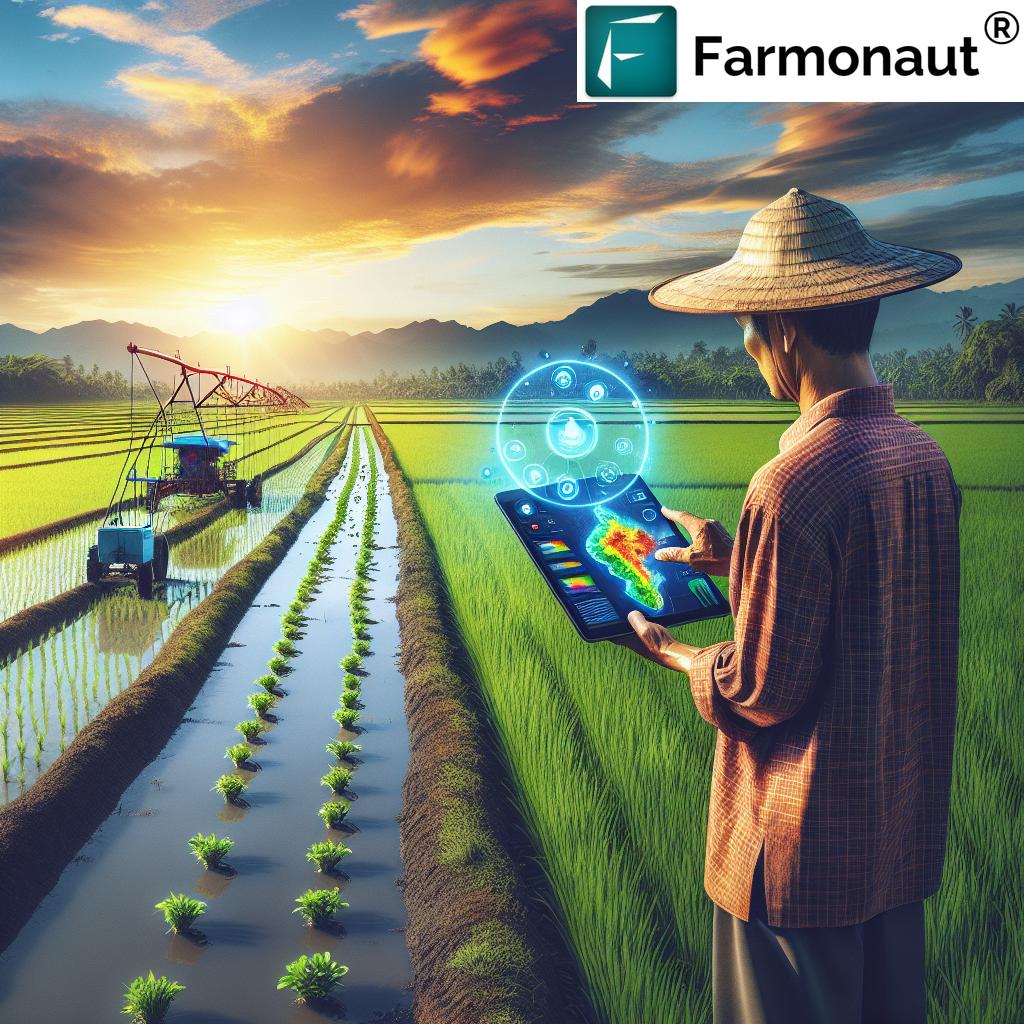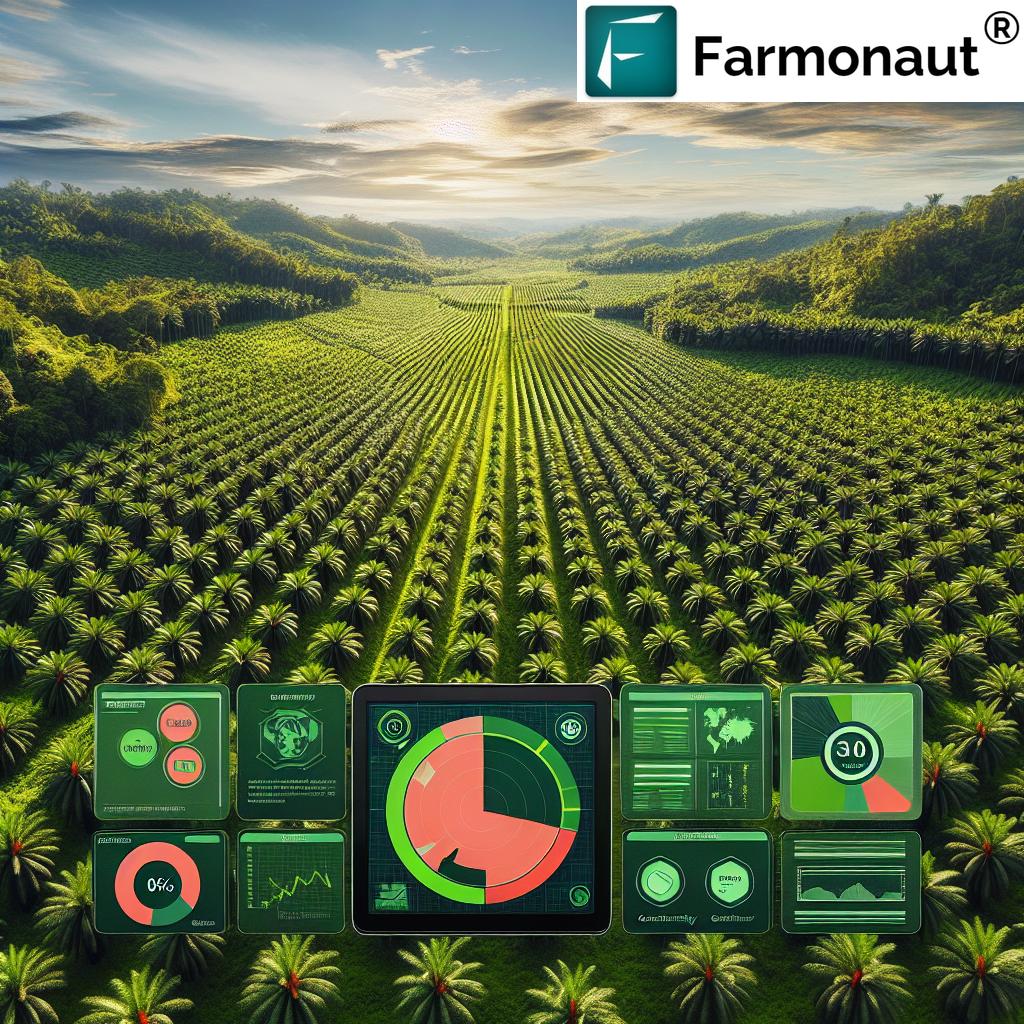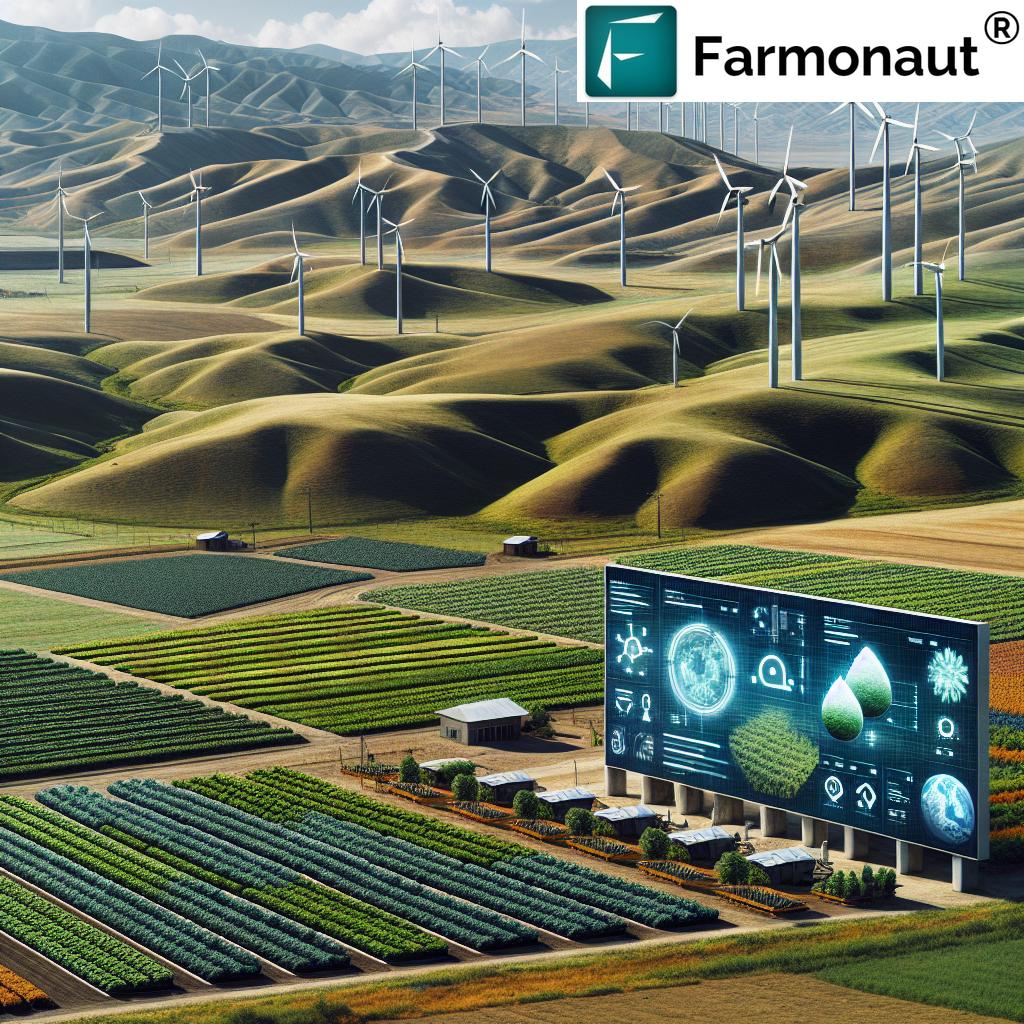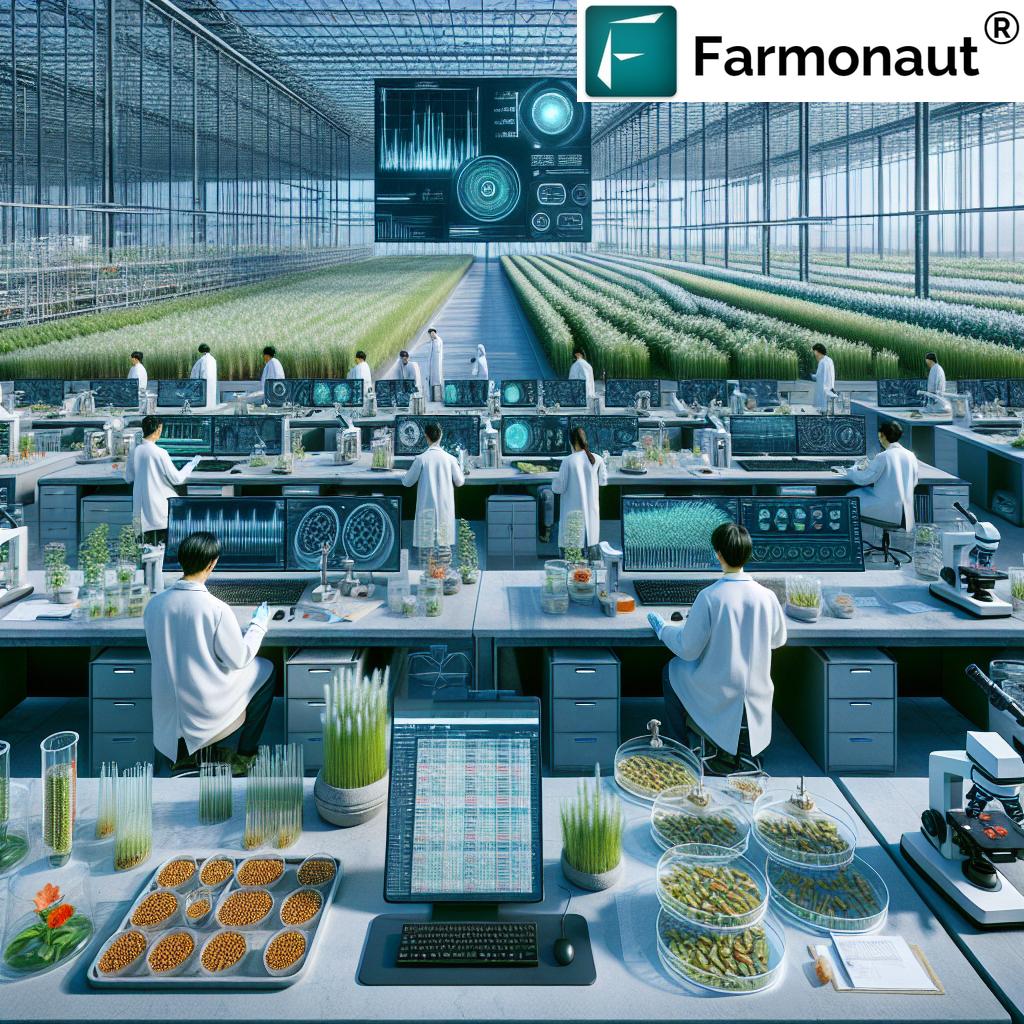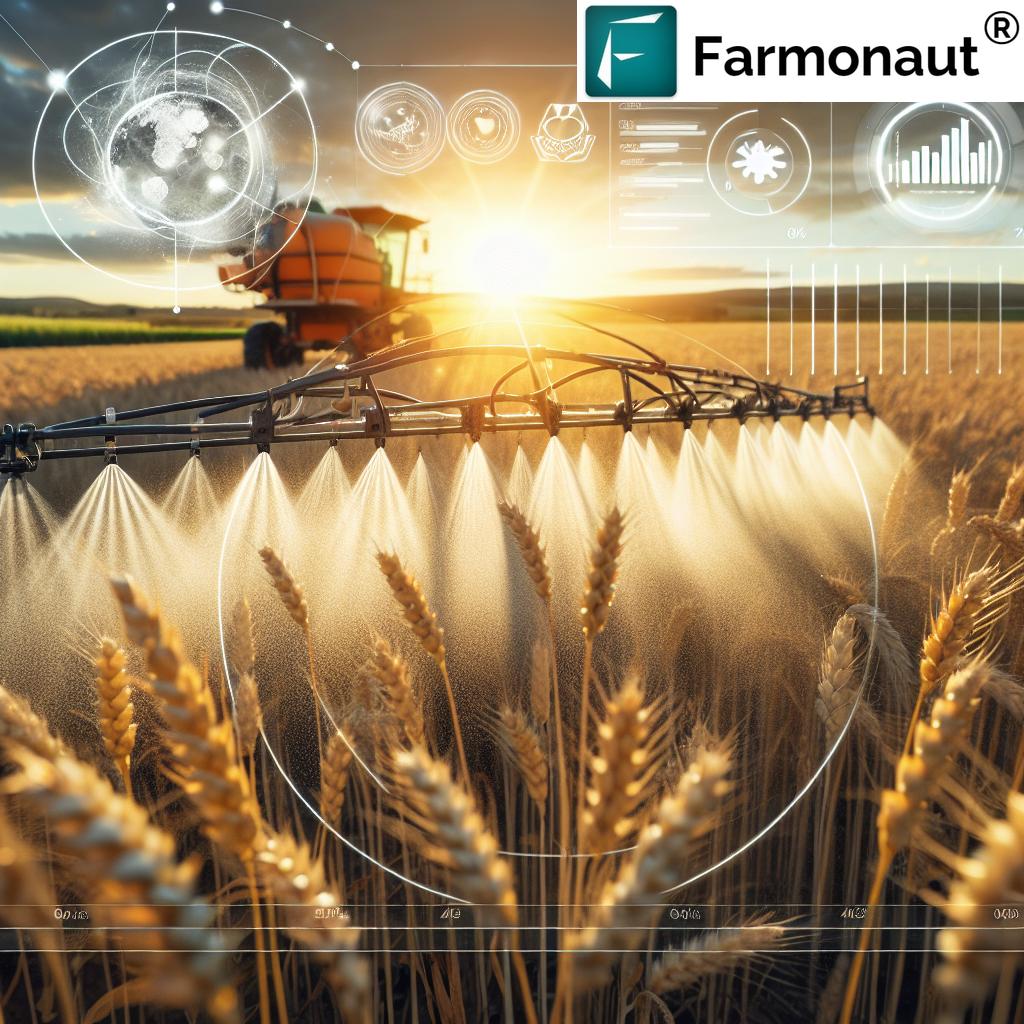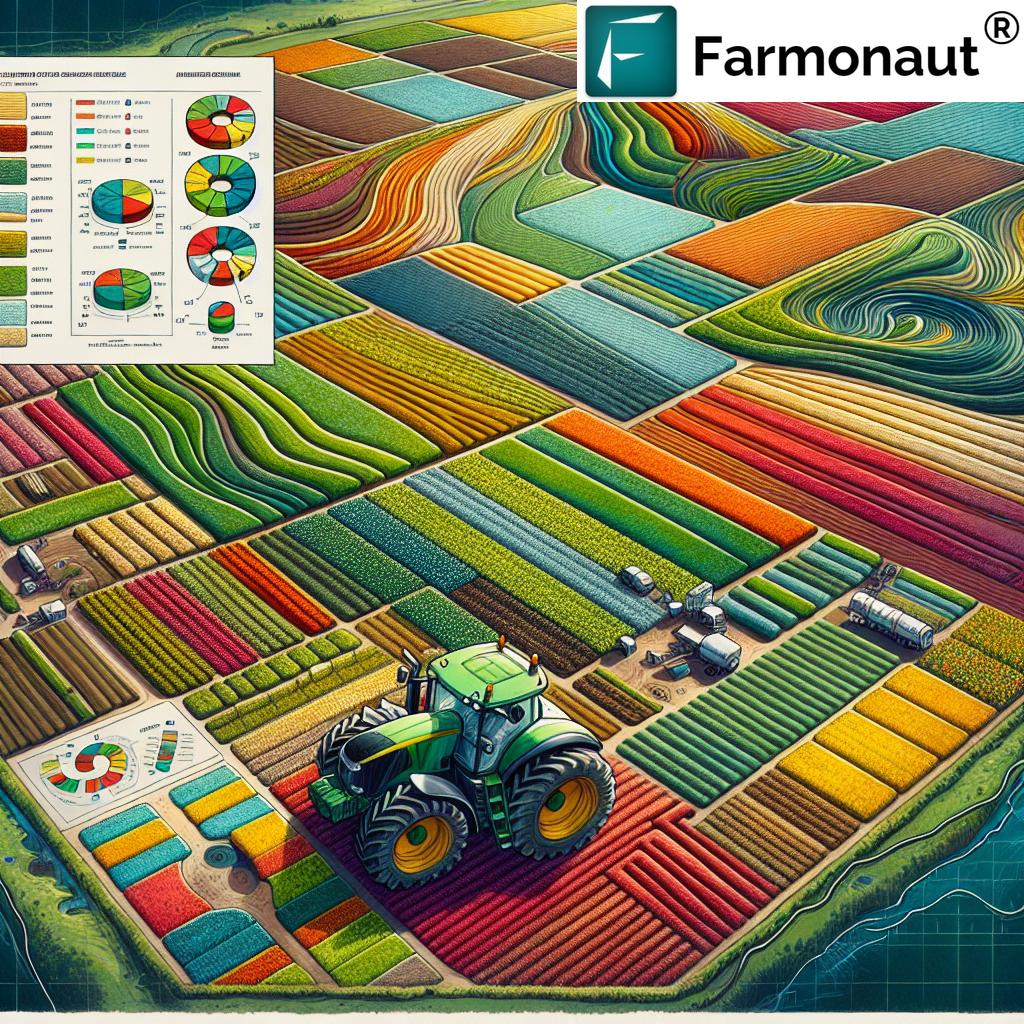Climate-Resilient Agriculture: How Farmonaut Empowers Small Farmers to Adapt and Thrive in the Philippines
“Small-scale farmers, who produce 80% of food in developing countries, are most vulnerable to climate change impacts.”
In the face of unprecedented climate challenges, we find ourselves at a critical juncture where the intersection of agriculture and environmental sustainability has never been more crucial. As we delve into the heart of this issue, we’ll explore how innovative agricultural technology solutions, particularly those offered by Farmonaut, are empowering small-scale farmers in the Philippines to adapt and thrive in an increasingly unpredictable climate.
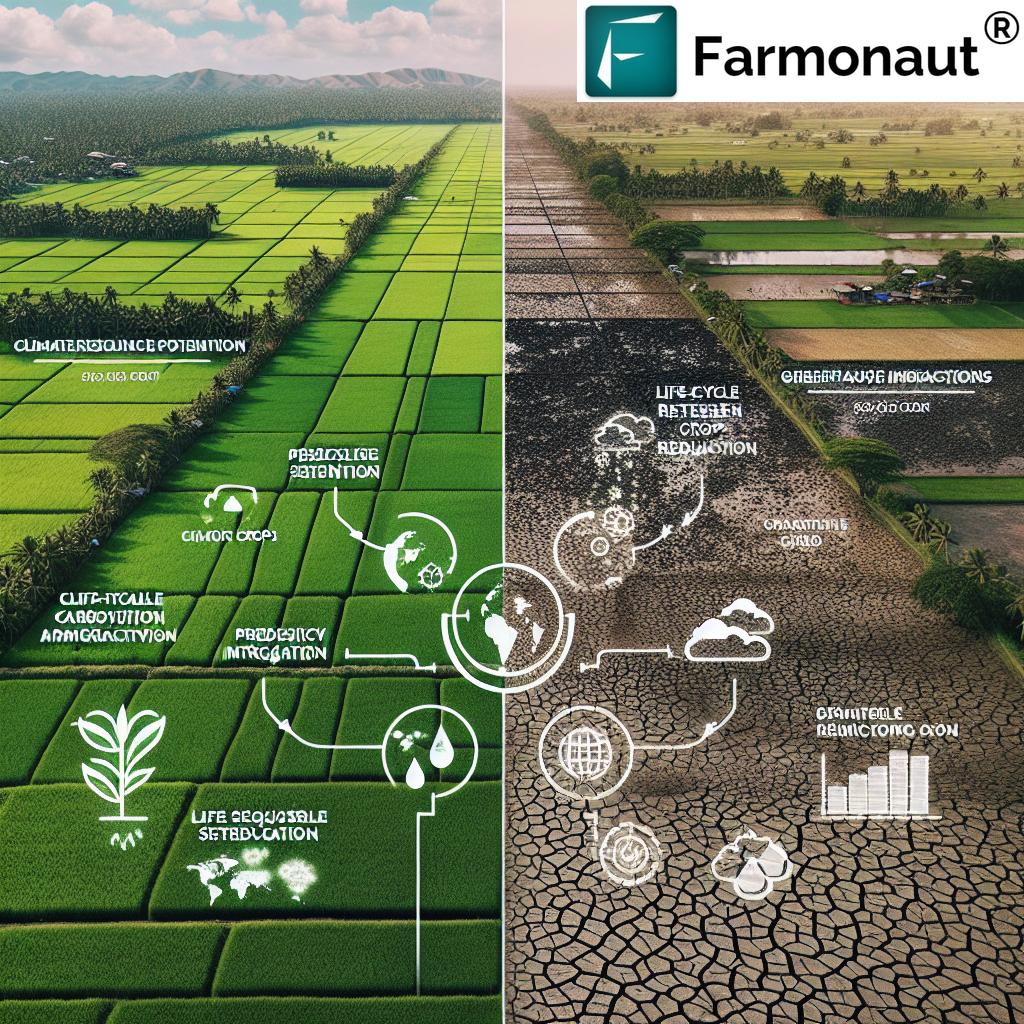
The Climate Crisis and Its Impact on Philippine Agriculture
The Philippines, an archipelagic nation heavily reliant on agriculture, stands at the forefront of climate change’s devastating effects. From scorched pineapple fields to flooded rice paddies, the country’s farmers are witnessing firsthand the harsh realities of a warming world. Let’s examine the multifaceted challenges they face:
- Extreme Weather Events: Increased frequency and intensity of typhoons and droughts
- Rising Temperatures: Heat stress on crops, particularly affecting heat-sensitive varieties
- Altered Rainfall Patterns: Disruption of traditional planting and harvesting cycles
- Sea Level Rise: Salinization of coastal agricultural lands
These climate-induced challenges not only threaten food security but also the livelihoods of millions of small-scale farmers who form the backbone of the Philippine agricultural sector.
The Urgent Need for Climate-Resilient Agriculture
As we grapple with these challenges, the concept of climate-resilient agriculture emerges as a beacon of hope. But what does this entail, and how can technology play a pivotal role?
Climate-resilient agriculture encompasses a range of sustainable farming practices and technologies designed to withstand or recover from climate shocks and stresses. It’s not just about survival; it’s about thriving in the face of adversity. This is where Farmonaut steps in, offering a suite of advanced, satellite-based farm management solutions that are revolutionizing how small farmers approach climate adaptation.
Farmonaut’s Innovative Approach to Climate Resilience
Farmonaut’s platform integrates cutting-edge technology with traditional farming wisdom, providing farmers with tools that were once the preserve of large agribusinesses. Here’s how Farmonaut is making a difference:
- Real-Time Crop Health Monitoring: Using multispectral satellite imagery, Farmonaut enables farmers to track vegetation health indices like NDVI (Normalized Difference Vegetation Index), providing early warnings of crop stress.
- AI-Powered Advisory System: The Jeevn AI system delivers personalized recommendations based on local conditions, helping farmers make informed decisions about planting, irrigation, and pest management.
- Precision Resource Management: By optimizing the use of water, fertilizers, and other inputs, Farmonaut helps farmers reduce waste and increase efficiency – crucial in a changing climate.
- Weather Forecasting and Risk Assessment: Advanced weather modeling helps farmers prepare for and mitigate the impacts of extreme weather events.
To better understand how Farmonaut’s technology is transforming land use in agriculture, watch this informative video:
As we can see, Farmonaut’s approach to climate-resilient agriculture is comprehensive and tailored to the unique challenges faced by small farmers in the Philippines.
The Gap in Climate Finance and Its Impact on Small Farmers
While technological solutions like Farmonaut offer immense potential, a significant hurdle remains: the glaring gap in climate finance reaching small-scale farmers. Despite agriculture contributing significantly to greenhouse gas emissions, less than 1% of climate finance actually reaches small farmers. This disparity is particularly alarming considering the critical role these farmers play in global food security.
“Agriculture contributes 19-29% of global greenhouse gas emissions, highlighting the sector’s role in climate change.”
The reasons for this financing gap are complex:
- Limited access to traditional banking systems in rural areas
- High perceived risk of agricultural investments in climate-vulnerable regions
- Lack of collateral or credit history among small-scale farmers
- Insufficient understanding of the unique needs of smallholder agriculture
Farmonaut addresses some of these challenges by providing verifiable data on farm performance and crop health, which can be invaluable for financial institutions assessing loan applications or insurance claims. This data-driven approach can help bridge the trust gap between farmers and financial institutions, potentially unlocking much-needed capital for climate adaptation.
Balancing Agricultural Needs with Climate Mitigation
As we strive for climate-resilient agriculture, a delicate balance must be struck between meeting immediate agricultural needs and long-term climate mitigation goals. This balance is particularly crucial in countries like the Philippines, where food security and economic development are intricately linked to agricultural productivity.
Farmonaut’s approach to this balance includes:
- Carbon Footprint Tracking: Helping farmers and agribusinesses monitor and reduce their greenhouse gas emissions
- Promoting Sustainable Practices: Encouraging methods that sequester carbon in soil and reduce the need for chemical inputs
- Efficient Resource Use: Minimizing waste and optimizing the use of water and fertilizers, reducing overall environmental impact
To dive deeper into how Farmonaut is addressing soil organic carbon, a key factor in sustainable farming, watch this enlightening video:
The Role of Technology in Empowering Small Farmers
Technology, when made accessible and affordable, can be a great equalizer. Farmonaut’s mission to democratize access to advanced agricultural technologies is a prime example of how tech can empower small farmers. By providing these tools through user-friendly mobile and web applications, Farmonaut ensures that even farmers in remote areas can benefit from precision agriculture techniques.
Key technological advancements offered by Farmonaut include:
- Satellite-Based Crop Monitoring: Regular updates on crop health and growth stages
- AI-Driven Insights: Personalized recommendations based on local conditions and historical data
- Blockchain-Based Traceability: Enhancing transparency and trust in agricultural supply chains
- Mobile App Accessibility: Putting powerful tools directly in farmers’ hands
For a comprehensive overview of how Farmonaut is leveraging satellite data to improve farming practices, check out this video:
Climate-Resilient Crop Production: A Case Study of Philippine Agriculture
To better understand the impact of climate change on Philippine agriculture and how Farmonaut’s solutions are making a difference, let’s examine a comparative table of key crops:
| Crop | Pre-Climate Change Yield | Current Yield | Adaptation Strategies with Farmonaut |
|---|---|---|---|
| Rice | 4.5 tons/hectare | 3.8 tons/hectare | – Precision irrigation management – Climate-smart variety selection – Early warning for pest and disease outbreaks |
| Pineapple | 45 tons/hectare | 38 tons/hectare | – Heat stress monitoring – Optimal planting date recommendations – Soil moisture tracking |
| Coconut | 60 nuts/tree/year | 50 nuts/tree/year | – Drought resilience planning – Intercropping guidance – Long-term climate trend analysis |
This table illustrates the tangible impacts of climate change on crop yields and highlights how Farmonaut’s technologies can help farmers adapt and potentially recover lost productivity.
The Path Forward: Integrating Technology and Traditional Knowledge
While advanced technologies like those offered by Farmonaut are crucial for climate adaptation, it’s equally important to integrate these solutions with traditional farming knowledge. The Philippines has a rich agricultural heritage, and many farmers possess generations of wisdom about local ecosystems and farming practices.
Farmonaut’s approach recognizes the value of this traditional knowledge, complementing it with data-driven insights. This synergy between old and new creates a powerful framework for climate-resilient agriculture that is both technically advanced and culturally relevant.

The Importance of Collaborative Efforts
Addressing the challenges of climate change in agriculture requires a collaborative approach involving various stakeholders:
- Government Agencies: Implementing supportive policies and providing infrastructure
- Research Institutions: Developing climate-resilient crop varieties and farming techniques
- NGOs and International Organizations: Facilitating knowledge transfer and capacity building
- Private Sector Companies like Farmonaut: Providing innovative technological solutions
- Farmers and Farmer Organizations: Sharing on-the-ground experiences and traditional knowledge
By fostering partnerships among these diverse groups, we can create a more robust and responsive agricultural system capable of withstanding climate challenges.
Accessing Farmonaut’s Solutions
For farmers, agribusinesses, and organizations interested in leveraging Farmonaut’s climate-resilient agricultural solutions, there are several ways to get started:
API Integration:
For developers and businesses looking to integrate Farmonaut’s satellite and weather data into their own systems, check out our API and API Developer Docs.
Subscription Options
Farmonaut offers flexible subscription plans to suit various needs and scales of operation:
Conclusion: A Resilient Future for Philippine Agriculture
As we face the daunting challenges of climate change, the role of innovative technologies in empowering small farmers becomes increasingly crucial. Farmonaut’s suite of solutions offers a beacon of hope, providing the tools and insights necessary for farmers to adapt and thrive in an uncertain climate future.
By bridging the gap between advanced technology and traditional farming practices, fostering collaboration among stakeholders, and making precision agriculture accessible to all, we can work towards a more resilient and sustainable agricultural sector in the Philippines and beyond.
The path to climate-resilient agriculture is not without its challenges, but with continued innovation, support, and collaboration, we can ensure a food-secure future for generations to come. As we move forward, let’s remember that empowering small farmers is not just about agriculture – it’s about preserving livelihoods, protecting our environment, and securing our global food supply in the face of climate change.
FAQs
- Q: How does Farmonaut help small farmers adapt to climate change?
A: Farmonaut provides satellite-based crop monitoring, AI-driven insights, and precision agriculture tools that help farmers make informed decisions about planting, irrigation, and pest management in changing climate conditions. - Q: Is Farmonaut’s technology accessible to small-scale farmers in remote areas?
A: Yes, Farmonaut’s solutions are designed to be accessible through mobile and web applications, making them available to farmers even in remote areas with internet access. - Q: How does Farmonaut contribute to sustainable farming practices?
A: Farmonaut promotes sustainable farming by optimizing resource use, reducing waste, and providing tools for carbon footprint tracking, all of which contribute to more environmentally friendly agricultural practices. - Q: Can Farmonaut’s solutions be integrated with traditional farming knowledge?
A: Absolutely. Farmonaut’s approach is designed to complement traditional farming wisdom with data-driven insights, creating a synergy between time-tested practices and modern technology. - Q: How does Farmonaut address the issue of climate finance for small farmers?
A: While Farmonaut doesn’t directly provide finance, its data and insights can help farmers build credibility with financial institutions, potentially improving access to loans and insurance for climate adaptation efforts.








